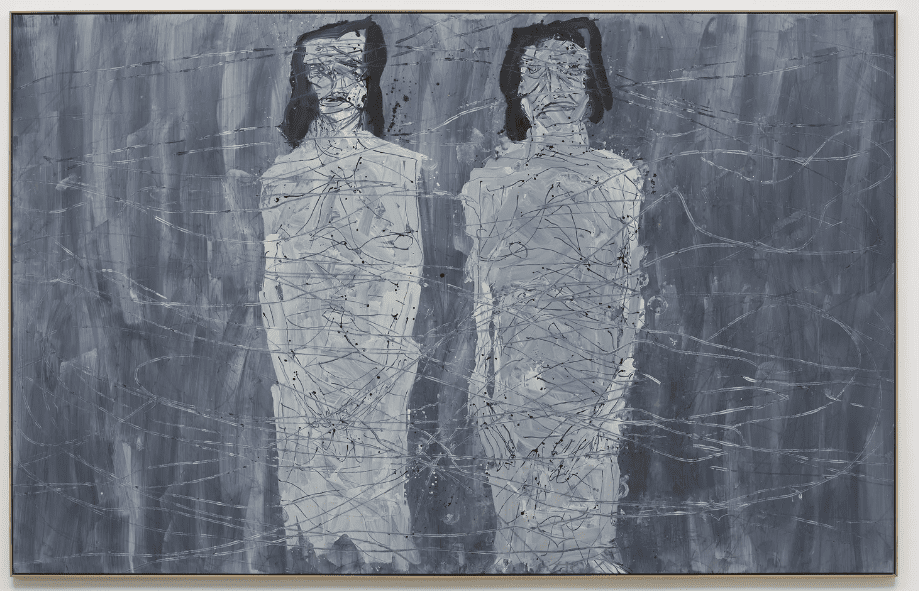Everything on this album other than Wiley himself is a sub-theme. The pronoun ‘I’ features in the promo version of the album seven hundred and five times. Seven hundred and five.
The full release of the album features an extra track which was submitted too late to appear on the promo package, so there is of course the possibility that Wylie has managed to shoehorn even more references to himself into the final cut. Those are just the utterances of ‘I’. Add to that the words ‘me’ and ‘Wylie’ and the numbers will certainly top four figures. In an album which has the underlying subtext of dichotomy (mainly the responsibility of staying true to his grime roots conflicting with the urge to go mainstream), the only real constancy is the artist’s self-obsession.
So if it has this many flaws, why is it still so great?
The album is dichotomous to the point of dithering. By the end of it, the dominant urge is to scream ‘East London grime credibility or West Coast glamour, who cares? Just PICK ONE and get on with it!’ For the benefit of potential fans, the sub-themes affecting Wylie’s mental well-being are as follows (for the benefit of the US hip-hop fans whose discretionary income he finds so very alluring, a translation follows):
- The responsibility of staying true to his grime music roots. (Keeping it real).
- Being successful on a financial and artistic level. (Keeping it real in a Bentley).
- How fed up he is with people wanting his attention now that he’s famous. (Hollywood Hills, Rentacop)
- How hard he’s worked to get what he’s got. (Jenny from the Block).
- How annoying it is that record labels want him to write more hit singles despite the fact he doesn’t want to do hit singles. (Keeping it real II)
- How everyone should stop writing him off as an irrelevant underground act considering that he’s had hit singles. (Keeping it real in a Bentley II)
- Everything good that’s happened in his career has been due to his work/brilliance. Everything bad has been because of the incompetence of his (six, and still counting) past record labels, and the media not understanding his brilliance. (Radio Stations I question their blackness. They call themselves black, but we’ll see if they play this.)
The conflicting intentions of the record are truly irritating, mainly because when he’s good; when he sticks to the stripped down keyboard counterpoint, tricky beats, warping sub-bass and cheeky rhymes of his beloved grime, Wylie is undeniably brilliant. The quotidian observations of getting a haircut, ordering food on the internet, putting money aside for his pension, admitting that buying designer clothes is ‘pouring money down the drain’ – these are the gems. #
Wiley is pretty good. His labelmate DELS, however, is astounding. That can’t be comfortable.
Unfortunately, the album’s emphasis on how to take the musical elements of grime to a bigger market overshadow a much more important question – where is he going with his lyrics? Right now, in the mileu of gritty realist hip-hop delivered in a British accent and concentrating on subjects of personal, social and ethical import, Wiley is pretty good. His labelmate DELS, however, is astounding. That can’t be comfortable. Could this be a reason for the album’s tedious and continual assertion that sticking with the grime format is of paramount importance? The message is rammed home so often, it really gets tautologous.
For an artist with such an obsession about the authenticity of his work, he sometimes comes dangerously close to tweaking it for the palettes of new territories. ‘Pink Lady’ couldn’t be more aggressively marketed to the US unless it had a handgun attached and was smothered in melted Monterey Jack. But even so, the dichotomy of personality that is the unspoken theme in this album manages to make the track shine. The tough guy swagger of the main vocal is subverted by a cheeky impish commentary that is surely the real Wiley. When the main line brags ‘I’m checkin’ out her breasts’, there is a giggling schoolboy glee in the repeated backing vocal that somehow makes it all ok. If the song is a puerile attempt to appeal to a sector of the US hip-hop market that takes its vicarious kicks from aspiring to be cruisin’ in a Bentley, checkin’ out the hos, and it almost certainly is that (the riddim veers too far into Hall and Oates territory for a hardcore grimester to be wholly comfortable with), there is at least some part of Wiley which realizes that there’s something pathetically predictable and sniggersome about the posturing necessary to sell black street swagga to the hordes of white rural thirteen year-olds who are the bulk of the US hip-hop market. Never mind Wiley, if it was a bad idea you can always blame it on your label. Again.
in grime’s case beats, bass, some sparse keys/samples and a voice – you need to be very, very good to make the music fresh and exceptional.
Even outside of the grime credibility message, there are some serious flaws in the lyrics. Metaphor works much better than simile in music. Not since Dylan wrote ‘like a rolling stone’ has there really been a place for the “’x’ is like ‘y’” line. It’s as cringingly GCSE poetry workshop a structure as the fly/high/sky rhyme. There are some bloody awful uses of the ‘like’ simile structure over the course of the album, not the least of them ‘gone wrong like a woman having an abortion’ (‘Boom Boom Da Na’). Elsewhere, there are a couple of rhymes using ‘pop’ and ‘flop’ which leave an undeniably nasty smell.
So if it has this many flaws, why is it still so great?
Well, firstly there is the clean and cold appeal of Wiley’s beloved grime. Strict parameters on any artistic form are restrictive to mediocre artists. They are, however, a template for excellence when the artist is a master. That applies as equally to sixteenth-century Russian Orthodox icon-makers as it does to sonnet-writers. When all you have are a defined set of elements – in grime’s case beats, bass, some sparse keys/samples and a voice – you need to be very, very good to make the music fresh and exceptional. Wiley’s beats are delicious, especially on ‘One Hit Wonder’ and ‘Up There’, his vocals have a machinelike rhythmic drive, his keyboard voices tweak the ear with evocative, elusive melodies and deceptively simple counterpoints. There are very few of the production effects (glitches, compression, syncopation) that are used with increasing frequency to add sonic interest to dull compositions on this record. It’s simple, raw and very, very engaging.
Then there is the cheeky self-deprecating voice that punctuates the swaggering front of the main vocal. Self-awareness and even self-doubt surface on occasion throughout the album, and their inclusion is a welcome, endearing feature. Most of all, there is the sheer audacity of spitting vocals that include ‘you’re talkin’ poo in a nappy’ which make it evident that, despite the temptation to court the US market, there is the soul of a cheeky London lad with a poetic confidence still paramount within his work. Even the toughguy references to champagne lifestyles, sexual conquest and meanstreets authenticity are tempered by a tongue that is just visibly in cheek. It’s impossible to shift the image of the naughty kid in school that can always get out of detention by making the teachers laugh.
The tough guy swagger of the main vocal is subverted by a cheeky impish commentary that is surely the real Wiley.
Finally, there is his pure devotion to his self-appointed genre. Despite the knowledge that he could be so much more successful if he were to drop the grime definition; the parochial restrictions of his subject matter; the accent – he’s convincingly unwilling to do so. ‘Nobody knows if it’s gonna work overseas, but I know I’m gonna try’ (‘100% Publishing’) The closing track ‘To Be Continued’ is crystal clear on his artistic ambitions, and more than makes up for any shallowness expressed elsewhere on the record:
To be continued
Cause my work ain’t over
Get my mind right, I could make a body of work
See I told ya
When he does get his mind right, it will be incendiary. ‘100% Publishing’ is close enough for now.
Wiley – 100% Publishing out Now on Big Dada/NinjaTune

An observer first and foremost, Sean Keenan takes what he sees and forges words from the pictures. Media, critique, exuberant analysis and occasional remorse.


















